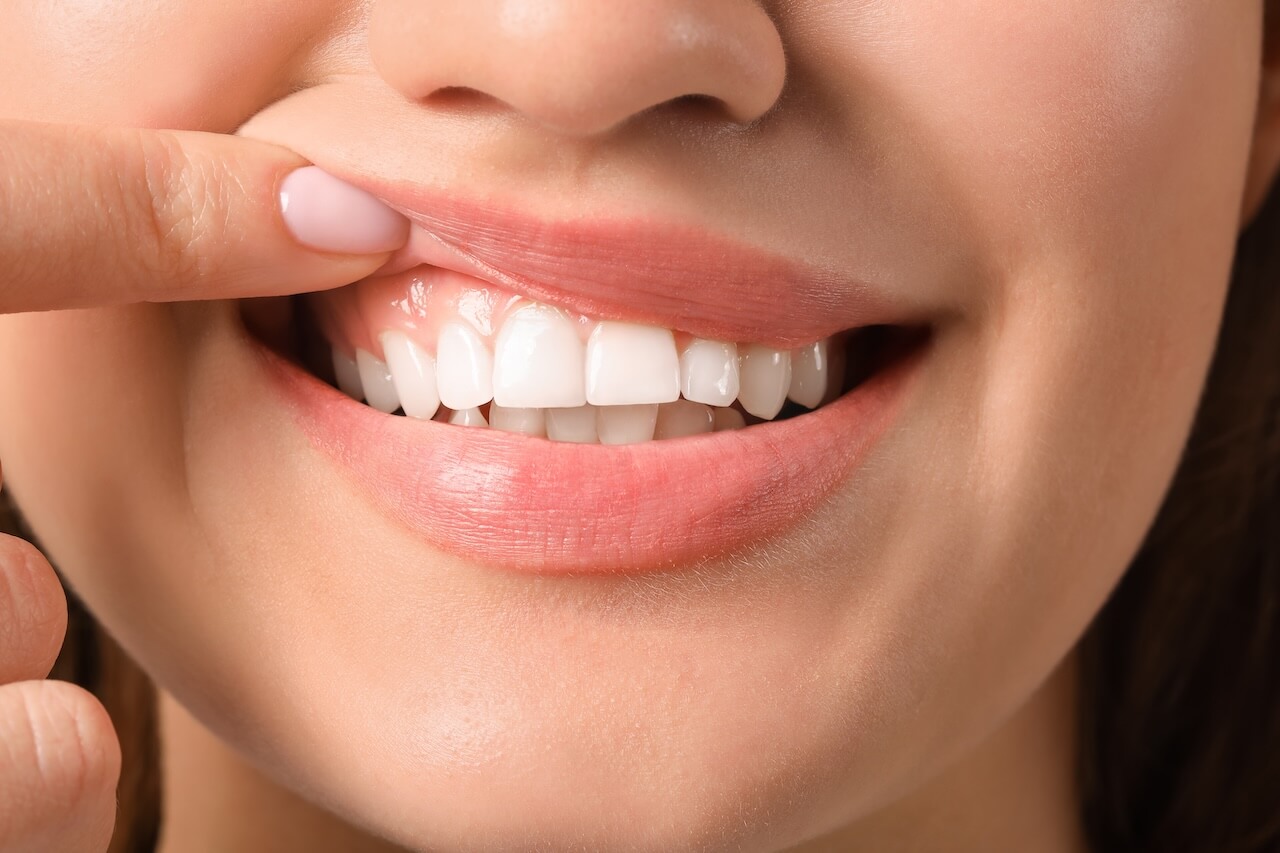How to Support Healthy Gums
 According to data from the Centers for Disease Control, over half of all children have a cavity by the time they are 8 years old and at least 25% of people develop cavities in their adult years.
According to data from the Centers for Disease Control, over half of all children have a cavity by the time they are 8 years old and at least 25% of people develop cavities in their adult years.
When you ignore oral health, you greatly increase the risk of severe gum disease, pain, infections and tooth loss.
Fortunately, preventive measures can mitigate these risks.
What is the Best Way to Improve Gum Health?
There are five key actions you can take to achieve better gum health:
Brush properly
Floss regularly
Use mouthwash
Stop smoking
Visit the dentist
Brush the Teeth Properly
Not brushing properly allows plaque—a sticky film of bacteria—to accumulate on your teeth. Over time, plaque hardens into tartar, leading to gum inflammation (gingivitis) and eventual gum disease (periodontitis).
Inadequate brushing also increases the risk of cavities, enamel erosion and bad breath (halitosis).
To avoid these problems, brush your teeth twice a day using fluoride toothpaste. Make sure to brush all tooth surfaces using gentle circular motions for at least two minutes each time.
Floss Regularly
As food and plaque build up between teeth and along the gumline, it becomes more difficult for toothbrushes to remove them.
This is why flossing at least once a day is so important. If possible, you should brush and floss after each meal.
When flossing, gently guide the floss between each tooth and along the gumline in a back-and-forth motion to get rid of plaque and debris that brushing alone can't reach.

Use Antibacterial Mouthwash
There's a good chance you already use mouthwash. In fact, more than half of the American population used mouthwash in 2020, and that number continues to grow each year.
Antimicrobial components included in antibacterial mouthwashes do an excellent job at fighting germs, which decreases plaque and helps prevent gum disease.
If you don't use it regularly, the germs in your mouth will flourish, and you may have more dental problems.
To keep your teeth and gums in tip-top shape, use an antimicrobial mouthwash twice a day, preferably after brushing and flossing.
Stop Smoking
Tobacco use causes tooth discoloration, tartar and plaque accumulation and gum disease.
Tobacco also slows healing after dental treatments and reduces blood flow to the gums, both of which impede your body's defenses against infection.
You're much more likely to develop oral cancer, lose teeth and experience jawbone atrophy if you smoke.
If quitting nicotine completely isn't possible, at least try to limit your tobacco use; doing so will improve your oral health and overall well-being.
Don’t Miss Teeth Cleanings and Check-ups
When you skip dental checkups, problems like cavities, gum disease and oral infections go unnoticed.
These issues can quickly escalate, causing pain, discomfort and even tooth loss. The longer they go untreated, the worse they will get.
Adults should visit the dentist twice a year. Those with certain dental conditions or a history of gum disease may need to schedule additional appointments.
Parents should take their children to the dentist at least once every 6 months to stay on top of their oral health.
This frequency enables the dentist and hygienist to promptly identify any developing issues, such as cavities or misalignment, and apply appropriate treatments.
Establishing this routine at a young age promotes good oral hygiene habits and sets the foundation for a lifetime of healthy smiles.
Conclusion
Regular dental check-ups, proper oral hygiene practices like brushing and flossing, and getting rid of bad habits like smoking are essential to optimal gum health.
Prioritizing these actions will help you have a healthier, happier smile.
To schedule a dental checkup, contact Noble Dental Care today.